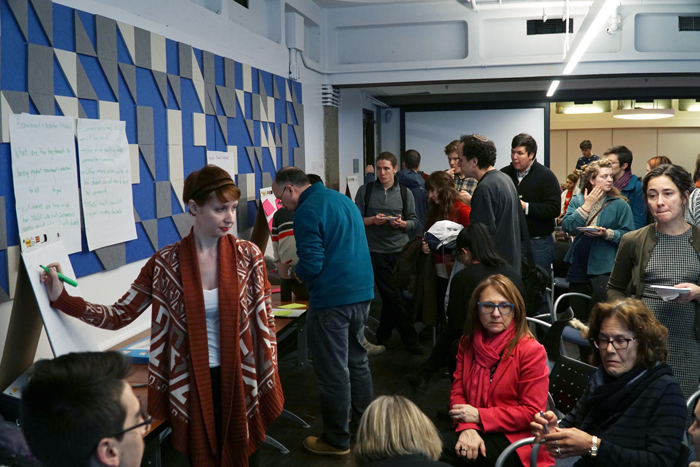On Nov. 22, the Provost’s Task Force on Indigenous Studies and Indigenous Education hosted an open forum to discuss their progress and receive input from members of the McGill Community. The Task Force was launched Sept. 22 of this year with the purpose of creating initiatives focused on integrating indigenous viewpoints into all areas of academic life, including research and retention of indigenous students and faculty.
Featured speaker Kenneth Deer, who is a member of the Mohawk nation and served on the Board of Trustees for the United Nations Voluntary Fund for Indigenous Populations, said that prejudices against indigenous people affected his upbringing.
“I don’t speak the language,” Deer said. “I’m a victim of the government language policy which forbade us to speak indigenous languages in schools.”
Deer asked forum participants to participate in the indigenous practice of thanking each aspect of creation and think of how ideas can impact the future during the forum.
“We start from the earth, the plants that grow, the medicines, the crops, and we gives thanks to the creator to these things that are necessary to our survival […],” Deer said “We have to remember all the people, the babies, the boys the girls, the elders, just like all the other animals. That brings us here today we all come here with purpose, we are here to deliberate about indigenous education. I ask all of you to keep creation and the future in mind.”
The forum was separated into six different groups that participants could choose and move between during a 30 minute time frame. Notetakers served to encourage participants to share their ideas rather than to teach a topic. According to Isaac, five of the groups–Indigenous Recruitment and Retention, Academic Programs and Curriculum, Physical Representation and Symbolic Recognition, Research and Academic Complement, Building Capacity and Human Resources–represented the five categories of the Provost’s Task Force for Indigenous Studies and Indigenous Education. There was an additional group where people could list ideas that did not fit into the other five categories.
Project Manager for the Indigenous Health Professional Training Initiative Jessica Barudin, who completed the Graduate Physical Therapy program at McGill in 2015, said outreach can be changed. She facilitated the discussion of Academic Programs and Curriculum.
“McGill needs to get out and meet the community, not just bring them in,” Barudin said. “Institutions aren’t always welcoming.”
Bethany Douglas, who received her master's degree in Education from McGill in 2016, is a member of the Mohawk nation and is from Kahnawà:ke. Douglas said she felt supported during her time at McGill University.
“I knew the First People’s House was there, as a place I could go to study,” Douglas said. “There was a community aspect, as there was a group from Kahnawà:ke. The First People’s House made it a wider family.”
Deer said racist attitudes towards members of the indigenous community should be tackled at a young age.
“Compulsory courses on indigenous courses could combat racism,” Deer said. “An alternative would be a better education in elementary [and] high school.”
McGill Provost and Vice-Principal (Academic) Christopher Manfredi said the university will provide monetary support for the Task Force for the recommendations released in the reports in January and June. According to Manfredi, the amount will be determined depending on what is in the preliminary report.
“We need to reflect upon the past to make a better future,” Manfredi said. “I want to thank everyone on the Task Force for their work. We know that the Task Force will be providing recommendations, those will need resources, as we build our budget, we are leaving places in the budget for those resources.”
Paige Isaac, co-chair of Provost’s Task Force on Indigenous Studies and Indigenous Education and coordinator of First People’s House, said that the ideas collected from the forum would be considered for the Task Force’s reports.
“The Task Force will make recommendations with respect to the role that McGill can and should play in responding to the [Truth and Reconciliation Committee’s] calls to action,” Isaac said. “There will be a preliminary report in January and the final report in June.”








